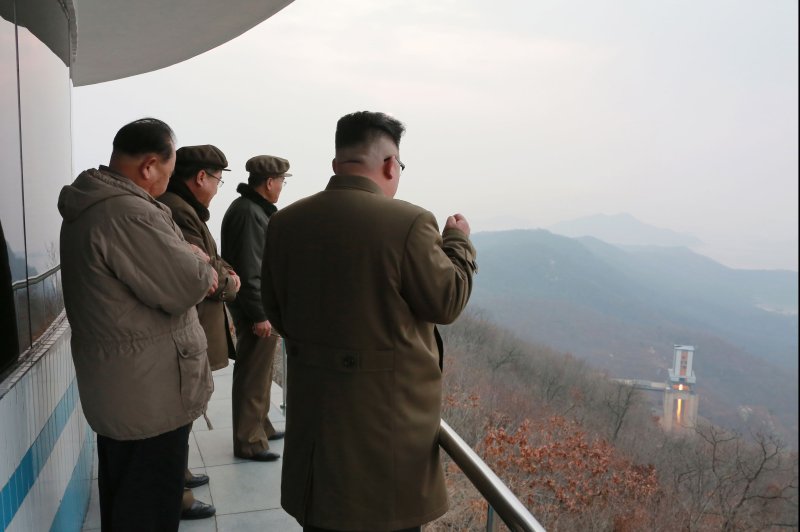Denaturalization Lawsuit Filed Against Convicted Al Qaeda Conspirator Residing In Illinois
The United States has filed a civil action in the Southern District of Illinois against a 47-year-old naturalized citizen, formerly of Cleveland, Ohio, accused of unlawfully procuring his U.S. citizenship, announced Acting Assistant Attorney General Chad A. Readler of the Justice Department’s Civil Division and U.S. Attorney Donald S. Boyce for the Southern District of Illinois.

Iyman Faris, a native of Pakistan, is currently serving a criminal sentence at the U.S. Penitentiary at Marion, Illinois for conspiracy to provide material support to a designated foreign terrorist organization, namely, al Qaeda, and for providing material support to al Qaeda. In October 2003, the U.S. District Court for the Eastern District of Virginia sentenced Faris to 20 years in prison. The civil complaint alleges that Faris entered the United States fraudulently by using another’s passport that he willfully misrepresented the circumstances under which he entered the United States on subsequent applications for immigration benefits, and that he twice testified falsely to obtain immigration benefits. Additionally, the complaint alleges Faris lacked the required attachment to the principles of the U.S. Constitution at the time of his naturalization, as proven by his 2003 federal conviction for providing material support to al Qaeda, a designated terrorist organization. Faris was naturalized as a U.S. citizen on Dec. 16, 1999.
“The Department’s Office of Immigration Litigation will continue to pursue denaturalization proceedings against known or suspected terrorists who procured their citizenship by fraud,” said Acting Assistant Attorney General Readler. “The U.S. government is dedicated to strengthening the security of our nation and preventing the exploitation of our nation’s immigration system by those who would do harm to our country.”
“The prosecution of this case demonstrates the commitment of the Department of Justice to preventing immigration fraud,” said U.S. Attorney Boyce. “It is important to ensure the path to legal naturalization remains secure and free of fraud. When people enter the United States, immigrate, and later become citizens, all done through fraud and misrepresentation, their unlawful actions harm the integrity of our immigration system.”
Under the Immigration and Nationality Act, a naturalized U.S. citizen’s citizenship may be revoked, and his certificate of naturalization canceled, if the naturalization was illegally procured or procured by concealment of a material fact or by willful misrepresentation.
This case was investigated by the Civil Division’s Office of Immigration Litigation, District Court Section and U.S. Immigration and Customs Enforcement. The litigation is being handled by Trial Attorney Edward S. White of the Office of Immigration Litigation and Assistant U.S. Attorney Nicholas J. Biersbach of the U.S. Attorney’s Office for the Southern District of Illinois.
The claims made in the complaint are allegations only, and there has been no determination of liability.
*** On background, here is the basis of the case from 2003:
IYMAN FARIS SENTENCED FOR PROVIDING MATERIAL SUPPORT
TO AL QAEDA
WASHINGTON, D.C. – Attorney General John Ashcroft, Assistant Attorney General Christopher A. Wray of the Criminal Division, and U.S. Attorney Paul McNulty of the Eastern District of Virginia announced today that Iyman Faris was sentenced to 20 years in prison for providing material support and resources to al Qaeda and conspiracy for providing the terrorist organization with information about possible U.S. targets for attack.
Faris, a/k/a Mohammad Rauf, 34, of Columbus, Ohio, was sentenced this afternoon by U.S. District Court Judge Leonie M. Brinkema, at federal court in Alexandria, Virginia. Before sentencing Faris, Judge Brinkema denied Faris’ request that he be allowed to withdraw his guilty plea.
Faris, a naturalized U.S. citizen born in Kashmir, pleaded guilty on May 1, 2003, to casing a New York City bridge for al Qaeda, and researching and providing information to al Qaeda regarding the tools necessary for possible attacks on U.S. targets. More here.


 CNN
CNN 2015
2015
 UPI
UPI Tillerson at the DMZ lexpress.fr
Tillerson at the DMZ lexpress.fr
